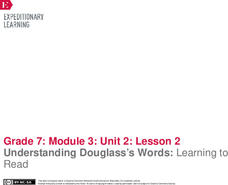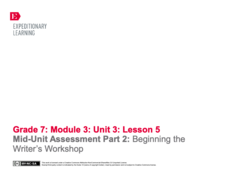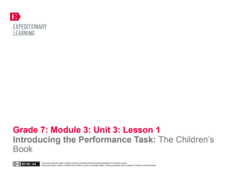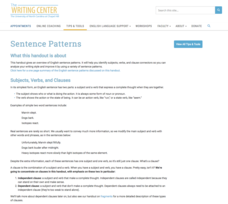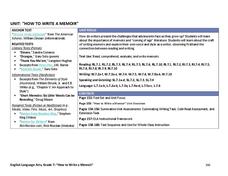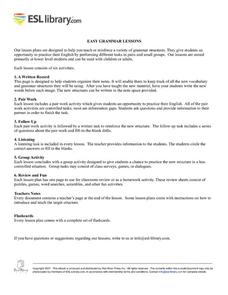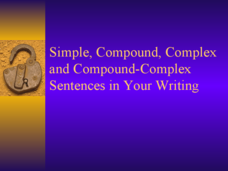Core Knowledge Foundation
Unit 3: Strange Case of Dr. Jekyll and Mr. Hyde by Robert Louis Stevenson Teacher Guide
The Core Knowledge Foundation offers this teacher guide to Robert Louis Stevenson's gothic novel about the duality of humankind. The 128-page guide includes a unit introduction, unit calendar, nine scripted lesson plans, assessments with...
Core Knowledge Foundation
Unit 7: Anne Frank’s Tales from the Secret Annex Teacher Guide
Frequently banned, often challenged, a mainstay of middle school curriculum, Tales from the Secret Annex, is the featured text in the seventh unit in the Teacher Guide Core Knowledge Program. The 134-page guide includes an introduction,...
Core Knowledge Foundation
Unit 2: The Tempest by William Shakespeare Teacher Guide
Massive storms, shipwrecks, survivors stranded on an island ruled by an aging magician, and strange creatures—Shakespeare's The Tempest appeals to today's middle schoolers. For this unit, seventh graders read selections from an adapted...
Core Knowledge Foundation
Unit 1: Hello, Universe by Erin Entrada Kelly Teacher Guide
Erin Entrada Kelly's award-winning novel, Hello, Universe is the anchor text in this 236-page teacher guide. The guide includes introductions to the Core Knowledge Language Arts (CKLA) program and the unit, a unit calendar, 12 lessons...
EngageNY
Analyzing Douglass’s Purpose: Excerpt 4
Anchors away! Scholars take a look at the Group Work anchor chart to prepare for the excerpt four, The Fight with Covey, analysis. The Excerpt 4 Analysis note catcher guides the group as they carry out their analyses. The class then...
EngageNY
Bringing Douglass’s Words to Life: The Fight with Covey
Readers have the opportunity to bring the words from an excerpt of Narrative of the Life of Frederick
Douglass to life. They use strategies from the Storyteller’s
Toolbox anchor chart as a guide and then work in pairs to prepare their...
EngageNY
Analyzing Douglass’s Purpose: Learning to Read
Three for three. Groups of three complete Analysis note catchers that cover excerpt three of Narrative of the Life of Frederick Douglass. Before beginning, learners discuss group work by looking at the excerpt analysis role document and...
EngageNY
Understanding Douglass’s Words: Learning to Read
How is a sentence like the human body? Scholars think about the comparison as they view an image of the human anatomy and begin to complete an Anatomy of a Sentence anchor chart. They review roots, prefixes, and suffixes and then begin...
EngageNY
End of Unit Assessment and Independent Reading Review
Reader, writer, illustrator ... scholars wear many hats! Pupils become experts in recommending books to their classmates as they write reviews of their independent reading books. Next, after finishing the second draft of their children's...
EngageNY
Mid-Unit Assessment Part 2: Beginning the Writer’s Workshop
Writers learn about using sensory details as they revise bland sentences with more vivid language. Next, they begin writing the first drafts of their children's books, completing storyboards to effectively plan their writing.
EngageNY
Preparing for the Mid-Unit Assessment: Planning the Children’s Book
Pupils complete a My Children's Book Plan worksheet to carefully prepare for a narrative writing project. Scholars also continue working in their groups from lesson plan two, using their scavenger hunt worksheets to discuss what makes a...
EngageNY
Discussing and Identifying Themes: What Makes a Good Children’s Book?
Working in small groups, scholars look closely at a children's book to evaluate narrative techniques. Next, they complete a Children's Book Scavenger Hunt worksheet to analyze the literary elements of their selected stories.
EngageNY
Introducing the Performance Task: The Children’s Book
Using a Venn diagram, class members generate similarities and differences between narratives and summaries. Next, pupils co-create an anchor chart to capture their thinking about how an author zooms in on a particular part of a story.
EngageNY
End of Unit 1, Assessment, Part 2: Revise Essay Drafts
As a culminating unit activity, pupils revise their argumentative essays based on the novel Lyddie by Katherine Paterson. Paying careful attention to grammar, punctuation, and vocabulary, they incorporate teacher feedback to revise and...
EngageNY
Performance Task: Two-Voice Poem Readings
Eye contact, volume, and pronunciation are key ingredients to a successful presentation. Pupils present their two-voice poems to the class with their poetry reading partners. Next, to wrap up the unit, scholars use a worksheet to reflect...
University of North Carolina
Sentence Patterns
In an ideal world, sentences in a college-level essay should feature a variety of sentence types. In reality, most papers stick to simple and compound sentences, two of the types a handout on sentence patterns discusses. Part of a larger...
Louisiana Department of Education
How to Write a Memoir
Who are we and what shapes our identities? Seventh graders work to answer this question as they learn how to write a memoir. Full of non-print resources and supplemental texts that range from fiction to non-fiction, scholars write their...
ReadWriteThink
A Picture's Worth a Thousand Words: From Image to Detailed Narrative
A picture's worth a thousand words—and even more inspiration! A visual activity uses photographs to inspire writers. The process teaches aspects of narrative writing, such as point of view and characterization.
ReadWriteThink
Scaffolding Methods for Research Paper Writing
Rome wasn't built in a day, but researchers can be with proper scaffolding. This writing unit has scholars write a research paper through scaffolding of various parts of the process. Learners begin with identifying a topic and crafting a...
Curated OER
Sentence Structure: Sentence Types
Sixth graders identify parts that make up different types of sentences with a grammar presentation. The last few slides prompt learners to complete 10 exercises in which they indicate whether each sentence is simple, compound, complex,...
Curriculum Corner
7th Grade ELA Common Core Checklists
Track your class's progress on all of the ELA Common Core standards with these handy charts. Along the left side, each seventh grade identifier is listed along with the full text of the standard. As you teach, reteach, assess, and...
Curated OER
ESL Grammar Lessons
Practice makes perfect when it comes to learning grammar with this ESL resource. Offering a great way to teach about relative clauses, this lesson engages students with a series of partner, small group, and whole class speaking and...
Curated OER
Sentence Patterns
Clear up confusion surrounding simple, compound, and complex sentences. The poster, which could also be used as a reference sheet, includes five examples. The types of clauses, parts of speech, and types of punctuation are color-coded to...
Curated OER
Simple, Compound, Complex, and Compound-Complex Sentences in Your Writing
Have you ever graded a stack of essays that felt like a series of bland simple sentences? A helpful grammar presentation will help learners spice up their writing by varying their sentence style, making them stronger and more attentive...









